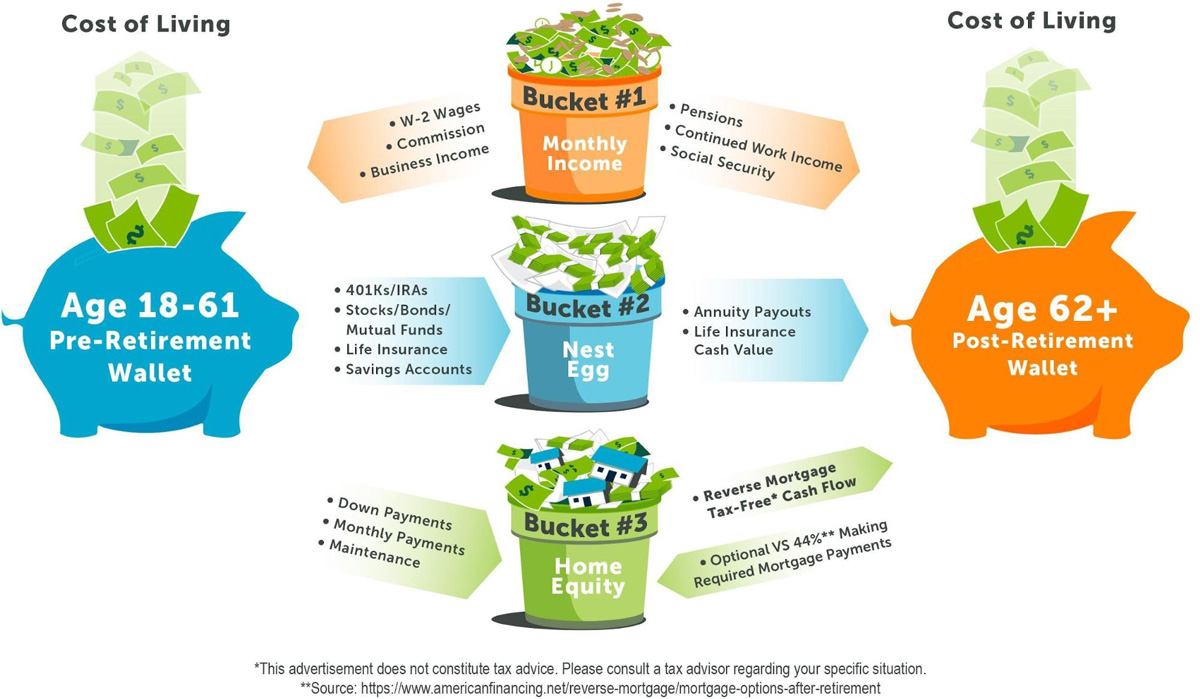If you ask people what they think about reverse mortgage loans, chances are you will get some pretty strong opinions. But these days, the most popular reverse mortgage loans (called HECM loans) are federally insured and 100% reliable.
As long as the house is the primary residence, it’s maintained, insured, and the property taxes are paid for, it can never be taken away. It’s always yours and your spouses, and you’ll never owe more than the house is worth. That means the loan will always be paid for in advance, and you can do whatever you want with the proceeds (which are tax free!). All that is to say, a reverse mortgage loan is really just about cashflow–converting the equity in your home into liquid, tax-free cash.
When the Gold Standard Is Just “Good”
Going back to the 1960s, having a fully paid off home was the gold standard for retirement. Even today, many people delay their retirement specifically until their mortgage is paid off. And having that equity is good, but is it really great? Can you fund investments with home equity, or bolster retirement savings, or buy a vacation home? No, you can’t. The truth is, you can’t even buy groceries or gas with home equity.
A reverse mortgage loan simply takes the equity in your home and turns it into tax-free money, and you get to live in the house for as long as you want. Since there’s no risk of foreclosure from missing payments, it’s really just a way to turn wealth you own but can’t touch into a new source of cash to secure and improve your retirement.
Home Equity Is Good, But Cash Is Better
For many people, the typical paradigm during their earning years is to place the biggest portion of monthly income into their home (bucket 3). What’s left after life expenses goes into their nest egg (bucket 2).
When we retire and income decreases to just social security and pension, we start drawing from bucket 2 to make up the difference. Despite being the most significant asset for many people, their home does not offer monetary assistance in retirement. In fact, it often sucks money up for payments, taxes, maintenance, renovations, etc.
But with a reverse mortgage loan, the home not only takes care of its own expenses, it adds a tremendous amount of tax-free cash to bolster either income or investments.
Making Your Retirement Funds Go Much Further
A common misconception is that you lose something with a reverse mortgage loan. But all you’re doing is converting equity into tax-free cash while you continue to live in your home as part of a strategic retirement plan. And if you were to choose a line of credit as payment, the amount that you don’t spend actually continues to grow every year.
Curious About What You May Qualify For?
Please reach out and we will be in touch!
*This article does not constitute tax advice. Please consult a tax advisor regarding your specific situation.
*The information contained herein is distributed for educational purposes only, and Fairway Independent Mortgage Corporation (Fairway) does not guarantee any services, information and/or advice provided by the individuals, nor does it imply a partnership or exclusive relationship between Fairway and the individuals.





